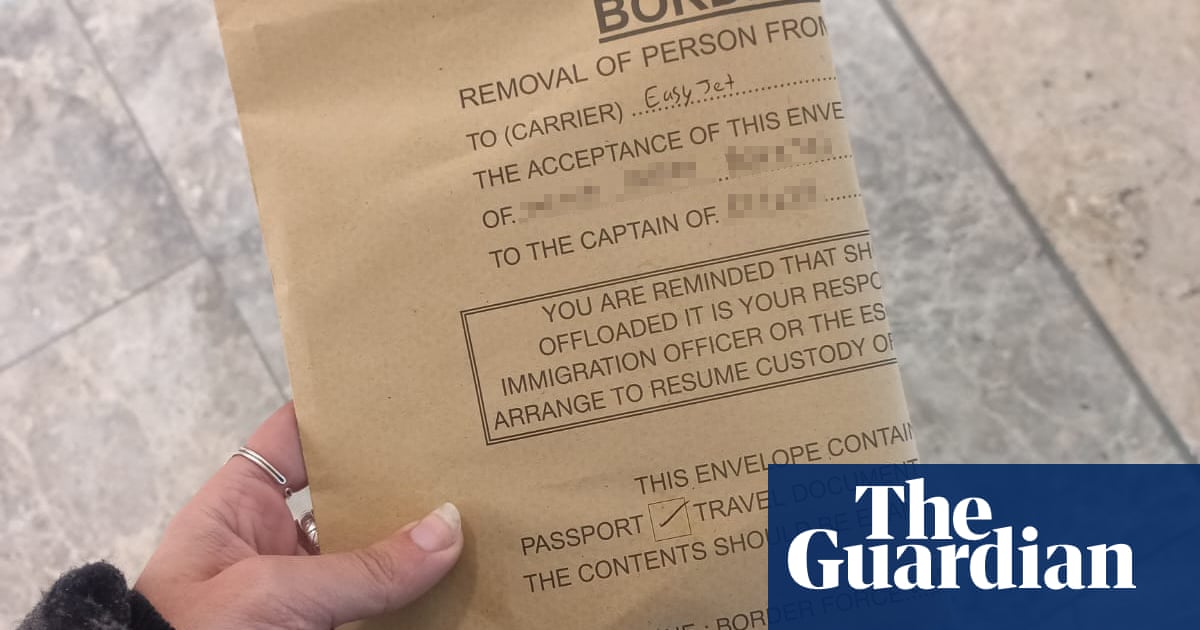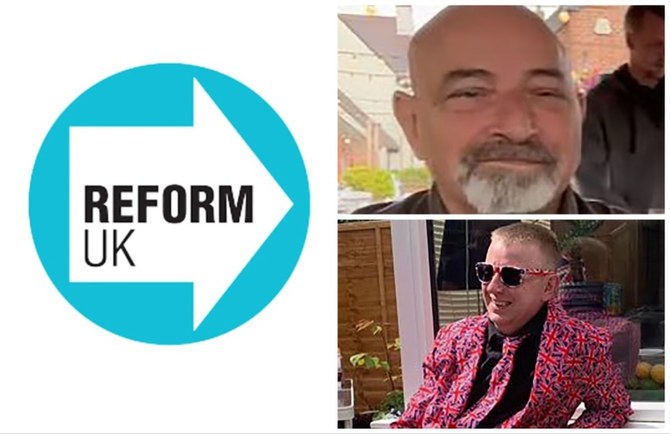
A 34-year-old Spanish woman was forcibly removed from the UK after returning from a Christmas holiday near Málaga despite presenting Brexit paperwork to border officials showing she has a right to live and work in the country.
She was flown back to Spain after being detained overnight in Luton airport on 26 December and told she was “wasting her time” if she thought the Home Office documentation she had showing her right to live in the UK was valid.
Alistair Strathern, the Labour MP for Mid Bedfordshire, said he was looking for answers from the Home Office about the case.
“I went home because my sister had a little baby girl, and literally four days later in Luton airport they took me to the detention room, took my stuff and my phone and told me to wait there. I was left there all night and then put on a plane,” said Maria, whose name has been changed.
The removal has left her in shock but also illustrates the jeopardy facing EU citizens whose applications to remain in the UK under the Brexit withdrawal agreement are yet to be concluded.
Maria’s husband flew out to Spain to help after British border officials warned her not to try to re-enter the country for a month.
She said: “I was supposed to be back at work but now my life has gone. All my stuff is in the UK: my dog, my car. I was doing this veterinary nursing apprenticeship, which was my dream.
“If I try and go back it will be even worse.”
Maria, a Spanish designer who is in the middle of a career change to a job working with animals, had made a late application for the EU settlement scheme in 2023 and was living with her husband and parents-in-law in Bedfordshire.
Her application was refused in June on the grounds she did not provide sufficient evidence, but she had asked for an administrative review of the decision and had a certificate of application (CoA) from the Home Office. It states “you can work in the UK until you receive a decision on your application to the EU settlement scheme”.
“I could have told them I was a tourist but I’m not and I have nothing to hide and told them that. I am waiting for appeal decision and hence I continue working,” she said.
She said the border official, who coincidentally had also stopped her in August but let her through the controls after consulting her colleague, told her the paperwork was not valid.
“She told me I was ‘wasting my time’ and it ‘was not true’ that I could work and I said, ‘Well there must be a hole in the system because my papers say I can do that and now you are telling me what the Home Office says is not true.’”
Maria lived in the UK from 2014 to 2018 and had more recently returned after a period in South Africa where her husband was completing his PhD. Covid lockdowns meant they were unable to return during the pandemic.
Under the rules she is permitted to make a late application but must demonstrate her break from the UK was not so long as to invalidate her rights under the withdrawal agreement.
The Border Force refused entry on the grounds that her “application for EUSS [EU settlement scheme] has been refused” and “you no longer have a right of admission to the UK as saved by the Citizens’ Rights (Application Deadline and Temporary Protection) Regulations 2020”.
Maria, who is now taking legal advice, rejects this version of events, arguing her certificate of application makes plain her right to work in the UK while her case is still being reviewed.
Strathern said: “It is really important, if our borders are to be secure and people are to have confidence in border officials, that they are empowered to act within the law, and it seems in this case that does not appear to have happened and there is a gap and I am more than happy to escalate this with the Home Office.”
The Home Office said the issue for those with certificate of applications trying to enter the country was not about their right to work but about demonstrating evidence they had the right to be in the country under the withdrawal agreement.
Those refused entry at the border were “liable for detention pending their removal from the port and UK”. But it added that “this is not the same as being subject to a deportation order which, whilst valid, would prevent re-entry to the UK”.
They also said a certificate of application did not give an EU citizen a right of travel in and out of the country and border officials were entitled to ask those who hold a CoA for further evidence of their residence in the UK before December 2020 at the border.
“Border Force’s number one priority is to keep our borders safe and secure, and we will never compromise on this,” a Home Office spokesperson said.
“Officers may stop any arriving passenger for the purposes of further examination where they are not immediately satisfied that they qualify for entry. This decision is taken based on the information that the passenger provides, not their nationality.”












